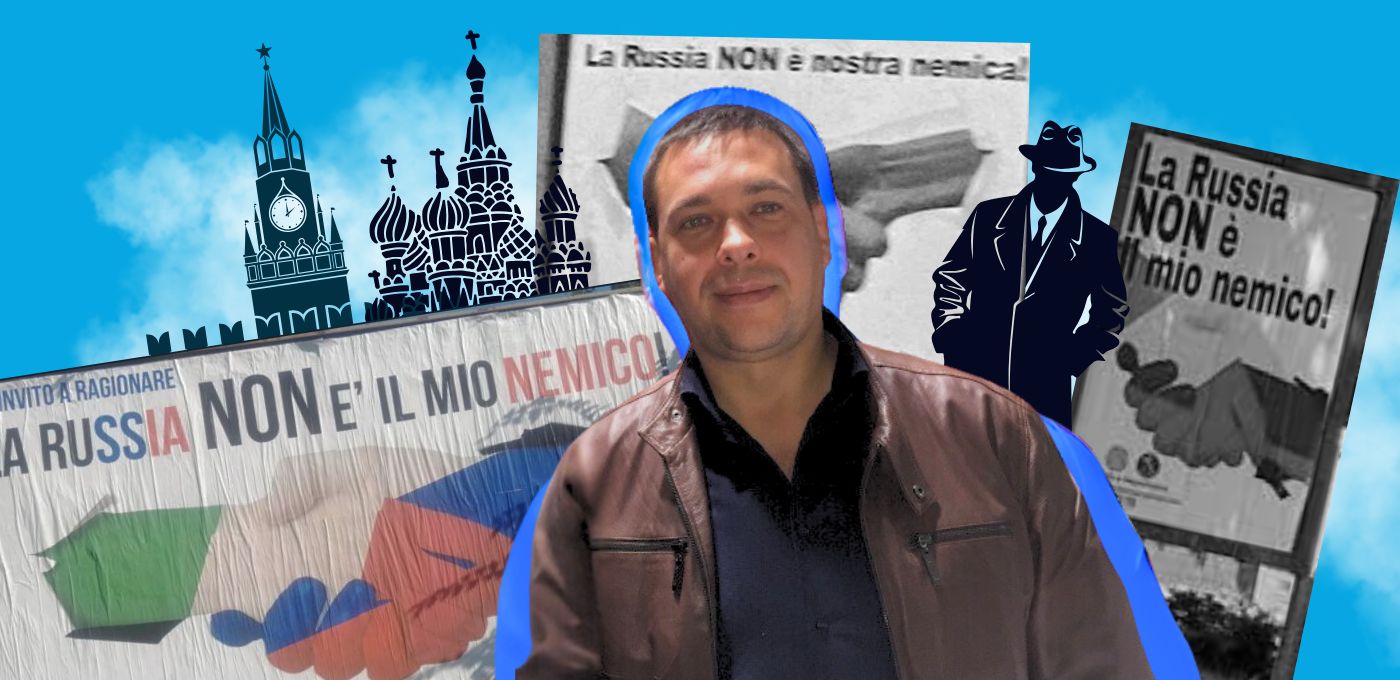In September, a pro-Russian billboard campaign appeared across Italian cities, featuring the slogan “Russia is not our enemy” alongside an image of an Italy-Russia handshake. The billboards called for an end to funding “weapons for Ukraine and Israel,” with some, including those seen in Rome, adding the message: “Enough money for weapons for Ukraine and Israel. We want peace, and we reject war”.
Ukraine’s Embassy in Italy responded quickly to the campaign saying that it was “deeply concerned by the arrogance of Russian propaganda in the Eternal City [i.e. Rome]” and asking the Rome local authorities “to reconsider granting permits for such posters that have a clear purpose of rehabilitating the image of the aggressor state.”
CNN alleged that an Italian group called “Sovranità Popolare” (Popular Sovereignty) claimed responsibility for the campaign by posting a lengthy article on its website. The group cited Article 11 of the Italian constitution, emphasizing Italy’s rejection of war as a means of aggression and its commitment to promoting peace and justice among nations.
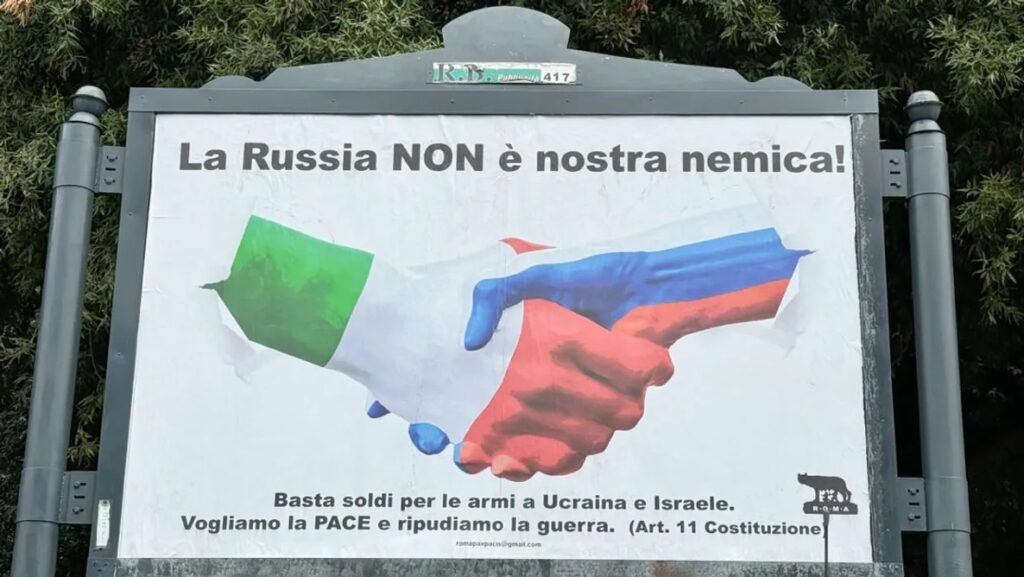
The “Sovranità Popolare” also accused “warmongers” among Italian politicians and media of fuelling fear and “Russophobia” since Russia’s invasion of Ukraine, hinting at a deliberate incitement of hatred toward Russian people, culture, and art.
However, the “Sovranità Popolare” itself – although avowedly pro-Russian – denied it was responsible for the billboard campaign across Italy, adding that even if the billboards were to be removed from Italian streets, the campaign would continue through other means.
Coccia questioned whether Aglioti financed the campaign independently or received external support (Aglioti later claimed that the campaign was crowd-funded) and criticized Rome’s authorities for not removing the ads despite Russia’s aggression against Ukraine.
Moscow's men in Italy
The pro-Russian billboard campaign in September mirrored a similar effort from this past summer. Moreover, while both “Sovranità Popolare” and Domenico Aglioti denied any connections to Russia, evidence suggests that the summer campaign can, in fact, be linked to actual Russian operatives.
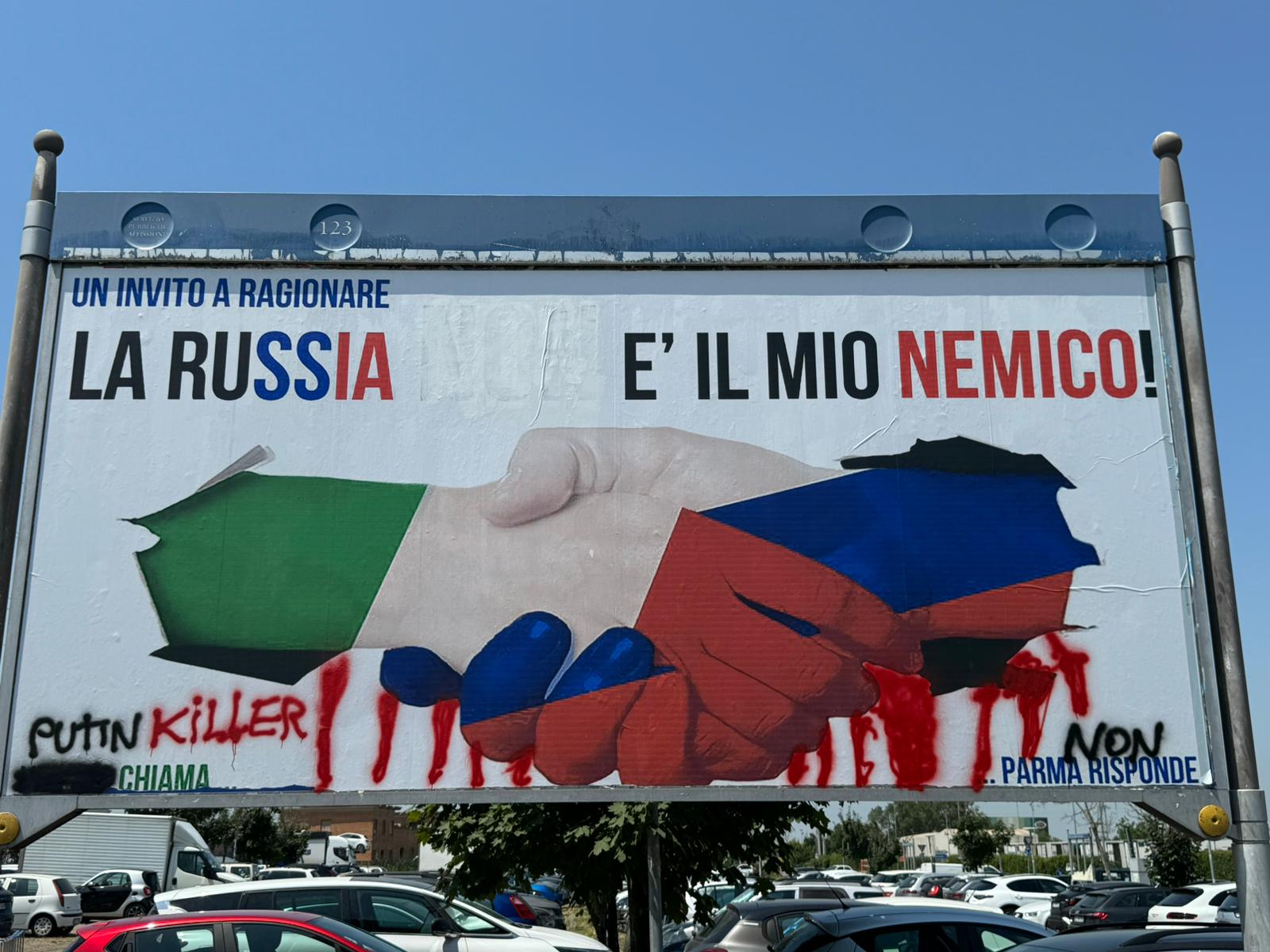
The summer campaign also involved numerous posters across Italy (starting in northern Italy, a bastion of Matteo Salvini’s far-right Lega party). It was coordinated by the Veneto-Russia Cultural Association, presided over by Palmarino Zoccatelli.
Zoccatelli is an Italian pro-Russian activist and the president of the Associazione Culturale Veneto-Russia (Venetia-Russia Cultural Association), the Veneto branch of the pro-Kremlin Lombardy-Russia Cultural Association founded by the members of the Italian far-right Lega Nord party of Matteo Salvini.
Like the main organization, Zoccatelli’s branch was founded in 2014 with the official aim of strengthening cultural and political ties between the Veneto region and Russia.
In 2018, he played the role of a fake “international observer” at the “general elections” in the so-called “Donetsk People’s Republic” ("DNR") and, in 2019, even opened a “center of representation” of the "DNR" in Verona.
In addition to Zoccatelli, the board of his Association features two prominent figures of the Italian pro-Russian milieu: Stefano Valdegamberi and Eliseo Bertolasi.
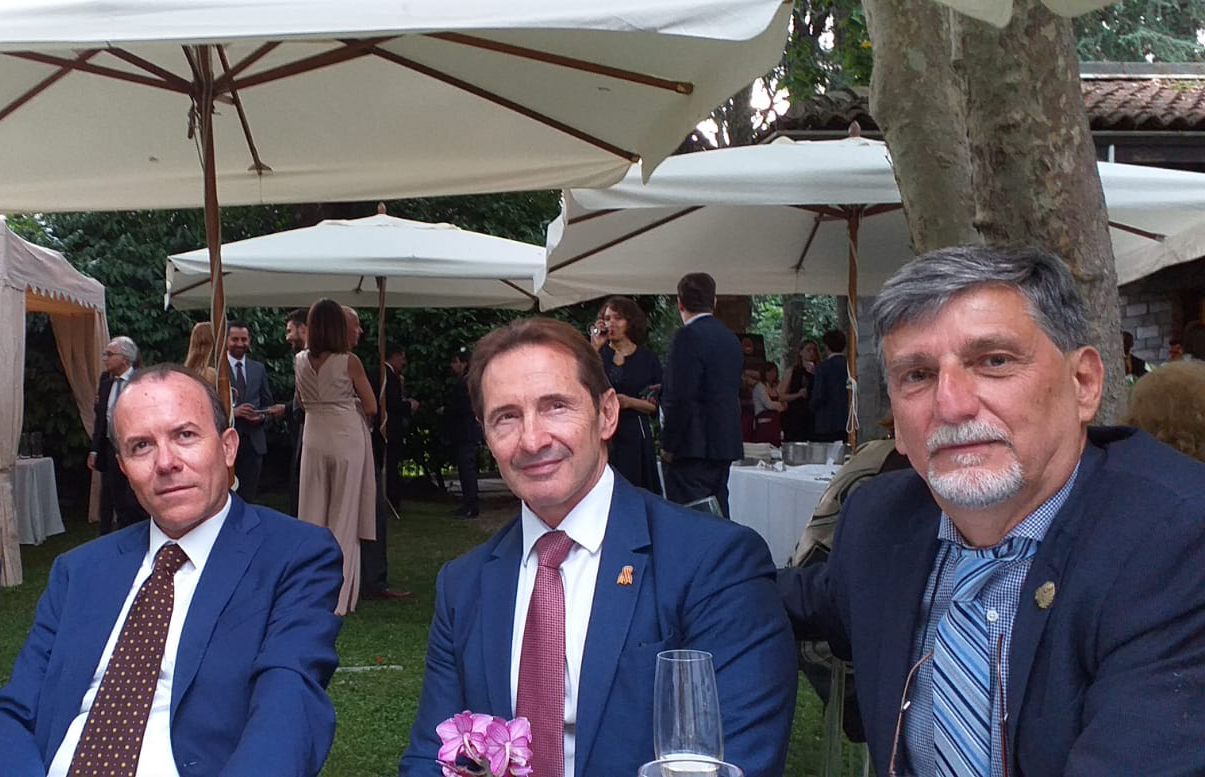
Valdegamberi is a long-time pro-Russian activist who was, until 2023, linked to the Lega Nord party. He participated in several staged “observation missions” in Russia and Russian-annexed Crimea.
The resolution was drafted by a Russian team led by one of Valdegamberi’s Russian handlers, Sargis Mirzakhanian, and was widely publicized by Russian media as a landmark endorsement of the annexation of Crimea.
"Writer" and "Erudite"
Eliseo Bertolasi is a notable Russian asset, and his Russian involvement stands out for its depth.
He was an associate researcher of Tiberio Graziani’s pro-Russian Institute of Advanced Studies in Geopolitics and Auxiliary Sciences, and contributed, as an Italian correspondent, to Russian state-controlled media outlets such as “Rossiya Segodnya” and “Sputnik.”
In 2023, Bertolasi was appointed as the head of the Italian branch of the International Russophile Movement, a network established by Russia to expand its malign influence abroad.
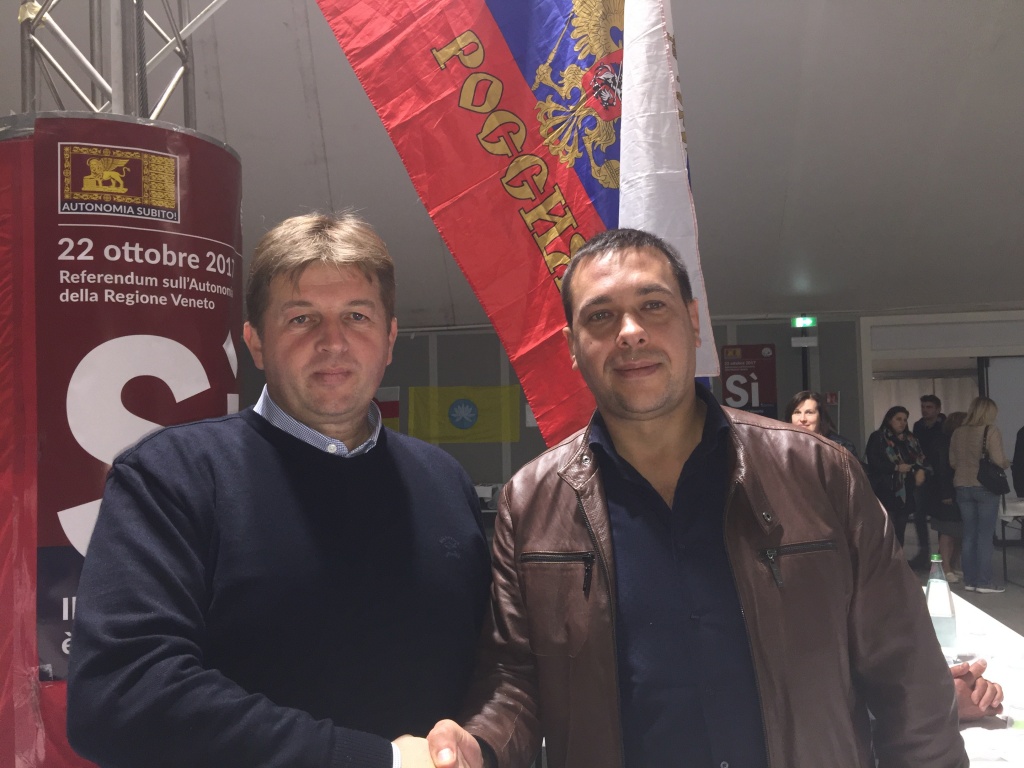
Bertolasi’s role as a correspondent for Russian state-controlled media likely earned him the codename “Writer” within Russian intelligence circles. One of his Russian handlers was, and possibly still is, Aleksey Stovbun (alias “Erudite”), a Russian FSB officer operating under the guise of a journalist working for the Russian media outlet “New Kuban.”
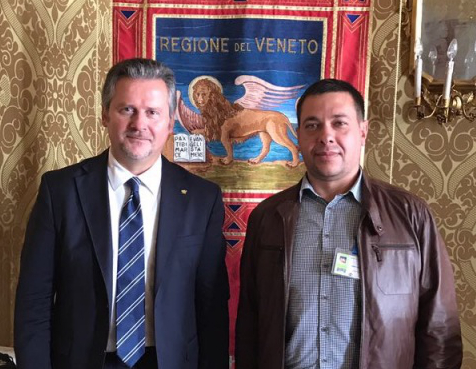
Stovbun established contacts with the Italian pro-Russian networks no later than 2016. That year, Stovbun visited Veneto on the eve of a referendum organized by the Lega Nord, demanding more autonomy from the central government in Rome.
During his visit, Stovbun was introduced to Stefano Valdegamberi, Roberto Ciambetti, the president of the Regional Council of Veneto, and Luciano Sandonà, the honorary president of Zoccatelli’s Associazione Culturale Veneto-Russia.
The Kremlin's covert anti-Ukrainian influence campaigns in Italy
The extent of Russia's influence on pro-Russian decisions made in Italy is made apparent in intercepted emails provided to me by a trusted source.
In 2018, Stovbun apparently played a certain role in the Verona City Council’s decision to deprive Ukraine’s President Petro Poroshenko of the title of honorary citizen of Verona.
In his report to a senior authority in August 2018, Stovbun wrote [abridged, see the full version of the report here]:
However, the possibility of revisiting this issue remains. In the parliamentary elections held in Italy this spring, the center-right parties Five Stars and League [i.e. Lega Nord] won most seats. Matteo Salvini, the leader of the League party, is currently the Deputy Prime Minister and Minister of Internal Affairs of Italy. Notably, representatives of the League party in the Verona City Council initiated the move to strip Poroshenko of his honorary citizenship. [...]
An agreement has been reached with “Writer” to help “Erudite” conduct interviews with leading politicians from Northern Italy and the leadership of the League party. “Writer” may also facilitate a personal meeting with Matteo Salvini. During these meetings and interviews, it may be possible to reopen the question of revoking Poroshenko’s honorary title.
Trending Now
A month after Stovbun’s report, Poroshenko’s honorary title as the honorary citizen of Verona was indeed revoked.
Following the developments, Ukrainian Ambassador to Italy Yevhen Perelyhin stated that the anti-Ukrainian action in Verona had been orchestrated by Russia: “the political show of the Kremlin had been performed by Verona artists,” referring to politicians from the Lega Nord party who had initiated and endorsed the Verona City Council’s decision.
It is now clear that Perelyhin was right.
In January 2019, Stovbun visited Verona again to participate in a conference organized by the Associazione Culturale Veneto-Russia. The conference featured Bertolasi, Valdegamberi, Zoccatelli, and Sandonà, among others.
During the meeting, Valdegamberi presented a letter demanding the lifting of economic sanctions imposed on Russia, addressed to the Italian parliament and government.
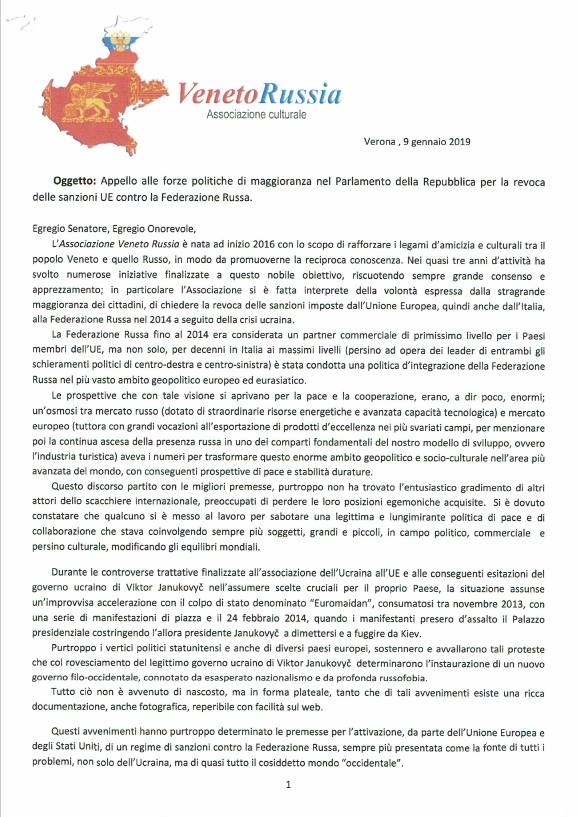
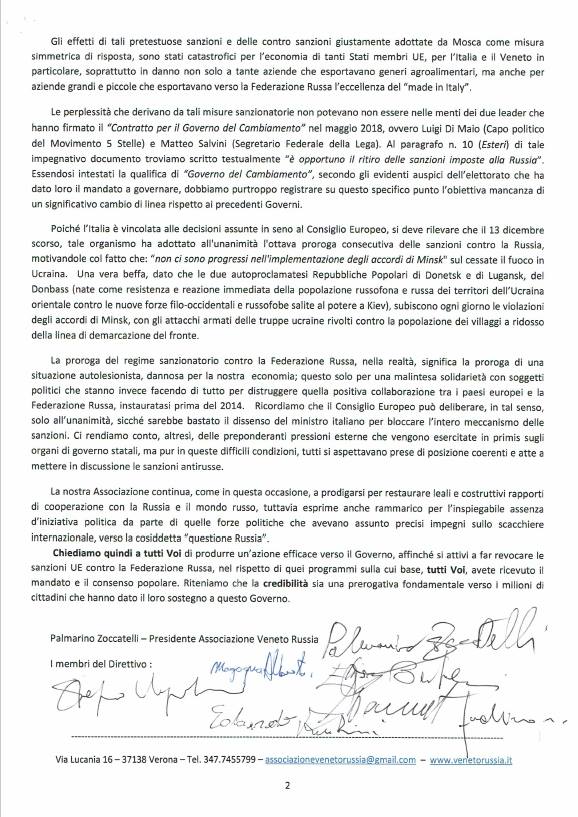
Referring to Valdegamberi’s letter in his confidential report to a senior authority, Stovbun, in particular, wrote [see the full report here]:
During an informal conversation with “Erudite” [i.e., Aleksey Stovbun], both Sandonà and Valdegamberi emphasized that the letter addressed to the Italian government – demanding the lifting of sanctions against Russia – had been discussed and agreed upon, including with Matteo Salvini. Given that the current Italian parliament has a majority favoring Salvini (the League and the Five Star Movement), the issue raised by the Association’s letter may now see real progress.
FSB operative Stovbun handled Kremlin agents beyond Italy
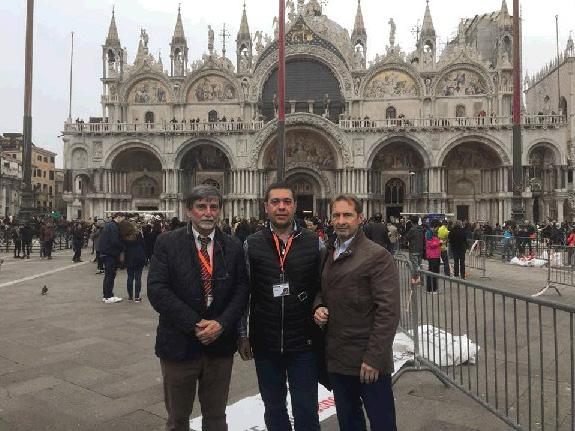
In addition to Bertolasi, Stovbun handled several assets in other countries. An investigation by the Latvia Public Media revealed that Stovbun was linked to Igors Bobirs in Latvia.
In August 2023, Bobirs was detained by Latvian authorities on suspicion of espionage for Russia. However, in November 2023, he was hospitalized in Latvia following a “rapid deterioration” in his health and passed away a week later. As of now, the cause of Bobirs’ death remains unknown.
The investigation by the Latvia Public Media also identified Serbian pro-Kremlin activist Dragana Trifković as yet another pro-Russian activist linked to Stovbun.
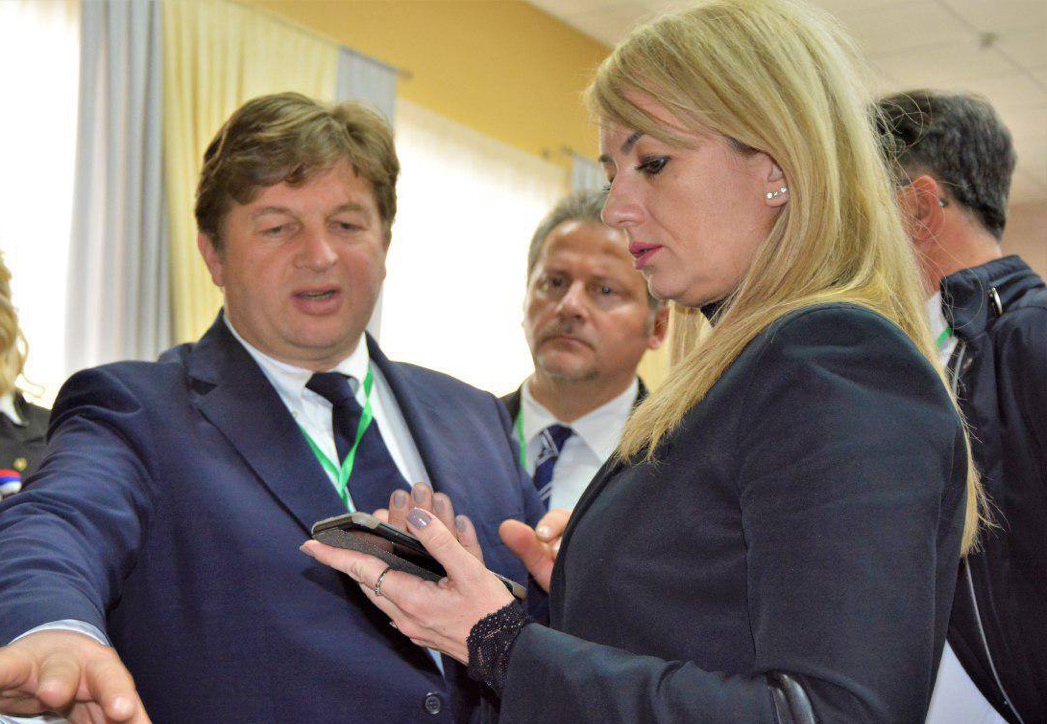
Trifković has been involved in pro-Russian activities since at least 2014. In November of that year, she “observed” the illegitimate “elections” in the "DNR" as part of the “monitoring mission” coordinated by Mateusz Piskorski (in 2016, he was detained by the Polish security services on suspicion of spying for Russia).
During the same visit to the Russia-occupied region of Ukraine, Trifković rubbed shoulders with Russian neo-Nazi warfighters Aleksey Milchakov and Yan Petrovsky (who would later be known as Voislav Torden). Petrovsky was arrested in Finland in July 2023 – at the end of October this year, he was officially charged by the Finnish prosecution with having committed war crimes in Ukraine in 2014.
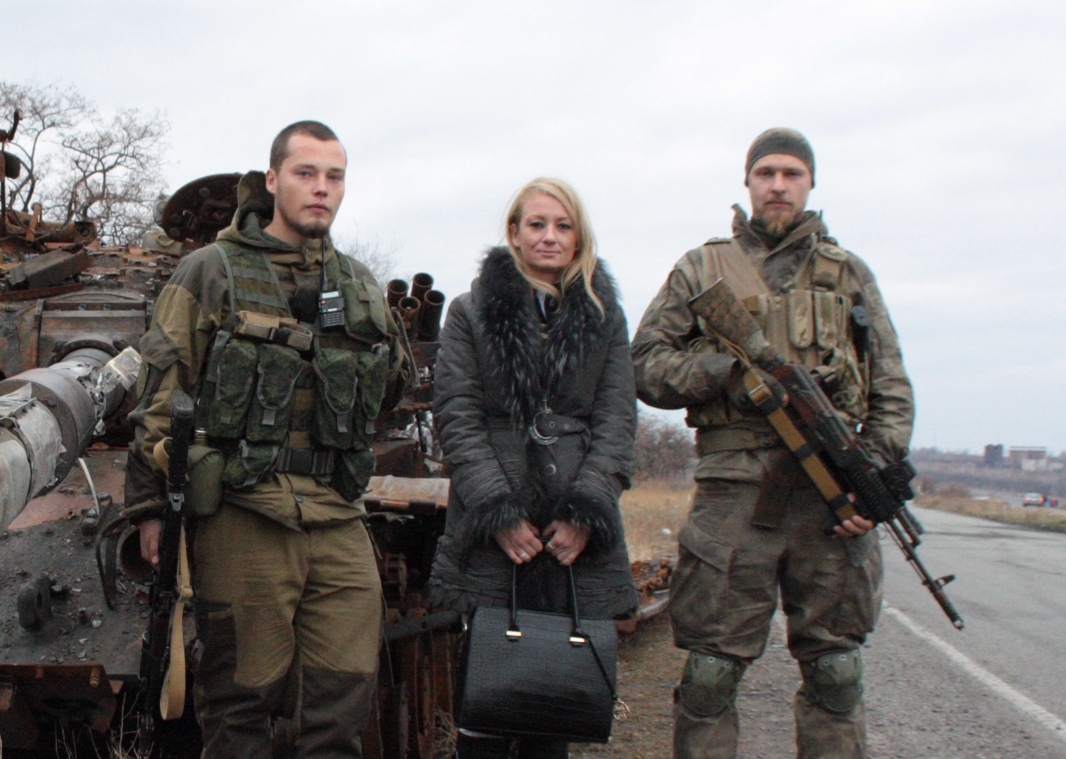
In 2018, Trifković worked with Yevgeniy Prigozhin’s AFRIC, a network of agents of influence who advanced Prigozhin’s and Kremlin’s interests in African countries. Later, she developed contacts with the far-right Alternative for Germany, the biggest pro-Kremlin party in Western Europe today.
Throughout the years, Trifković has maintained a consistent engagement with Russian geopolitical narratives, positioning herself as an anti-Western and anti-Ukrainian commentator. It was likely due to her pro-Russian activities – and despite her well-documented connections with agents of Russian influence – that she was invited (possibly by Russia) to speak at a UN Security Council meeting in September 2022 in support of Russia’s full-scale invasion of Ukraine.
Evidence from other confidential reports written by Stovbun suggests that he also handled other assets.
- “Lawyer” in the Czech Republic fulfilled an assignment to publish an anti-Ukrainian article in one of the Czech media.
- “Doctor” in Uzbekistan reported on the needs to strengthen collaboration between Russian and Uzbek universities.
- “Financier” in Latvia complained that the Latvian authorities intensified economic control over private businesses, requiring banks to report suspicious transactions – especially those involving Russian companies or citizens.
One can only hope that their identities will be uncovered in the not-too-distant future.
The activities of Stovbun and his associates highlight the intricate methods used by foreign agents to infiltrate and manipulate democratic processes. This underscores the need for heightened awareness and proactive measures by authorities to safeguard national sovereignty and the integrity of democratic institutions against covert foreign influence.
Related:
- Far right and left, conspiracy theorists among “foreign monitors” at Russia’s sham Donbas elections: Report
- The Kremlin’s lobby in Europe: Italy
- From Soviet flags to TikTok stars: How Russia poisons Italy across generations
However, the possibility of revisiting this issue remains. In the parliamentary elections held in Italy this spring, the center-right parties Five Stars and League [i.e. Lega Nord] won most seats. Matteo Salvini, the leader of the League party, is currently the Deputy Prime Minister and Minister of Internal Affairs of Italy. Notably, representatives of the League party in the Verona City Council initiated the move to strip Poroshenko of his honorary citizenship. [...]
An agreement has been reached with “Writer” to help “Erudite” conduct interviews with leading politicians from Northern Italy and the leadership of the League party. “Writer” may also facilitate a personal meeting with Matteo Salvini. During these meetings and interviews, it may be possible to reopen the question of revoking Poroshenko’s honorary title.

